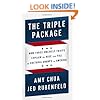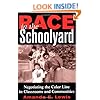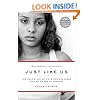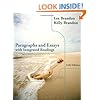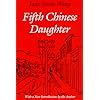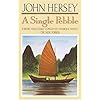
Battle Hymn of the Tiger Mother
and over one million other books are available for Amazon Kindle. Learn more


Flip to back
Flip to front


Battle Hymn of the Tiger Mother Paperback – December 27, 2011
See all 40 formats and editions
Hide other formats and editions
| Amazon Price | New from | Used from |
|
Mass Market Paperback
"Please retry"
|
—
|
— | $3.95 |
|
Audio CD, Audiobook
"Please retry"
|
—
|
$51.12 | $9.49 |
|
Unknown Binding
"Please retry"
|
—
|
$16.50 | — |

$9.28
FREE Shipping on orders over $35.
In Stock.
Ships from and sold by Amazon.com.
Gift-wrap available.
NO_CONTENT_IN_FEATURE
Start reading Battle Hymn of the Tiger Mother on your Kindle in under a minute.
Don't have a Kindle? Get your Kindle here, or download a FREE Kindle Reading App.
Don't have a Kindle? Get your Kindle here, or download a FREE Kindle Reading App.
Choose Your Own Autobiography
Step right into Neil Patrick Harris's shoes in an exciting, interactive autobiography that places the reader squarely in the driver's seat. Learn more
Step right into Neil Patrick Harris's shoes in an exciting, interactive autobiography that places the reader squarely in the driver's seat. Learn more
Product Details
Would you like to update product info or give feedback on images?.
|
Editorial Reviews
From Publishers Weekly
Chua (Day of Empire) imparts the secret behind the stereotypical Asian child's phenomenal success: the Chinese mother. Chua promotes what has traditionally worked very well in raising children: strict, Old World, uncompromising values--and the parents don't have to be Chinese. What they are, however, are different from what she sees as indulgent and permissive Western parents: stressing academic performance above all, never accepting a mediocre grade, insisting on drilling and practice, and instilling respect for authority. Chua and her Jewish husband (both are professors at Yale Law) raised two girls, and her account of their formative years achieving amazing success in school and music performance proves both a model and a cautionary tale. Sophia, the eldest, was dutiful and diligent, leapfrogging over her peers in academics and as a Suzuki piano student; Lulu was also gifted, but defiant, who excelled at the violin but eventually balked at her mother's pushing. Chua's efforts "not to raise a soft, entitled child" will strike American readers as a little scary--removing her children from school for extra practice, public shaming and insults, equating Western parenting with failure--but the results, she claims somewhat glibly in this frank, unapologetic report card, "were hard to quarrel with." (Jan.)
(c) Copyright PWxyz, LLC. All rights reserved. --This text refers to the Hardcover edition.
(c) Copyright PWxyz, LLC. All rights reserved. --This text refers to the Hardcover edition.
From Bookmarks Magazine
Most critics agreed that Battle Hymn of the Tiger Mother is an entertaining read—lively and humorous, written with the intent to shock. More controversial is Chua’s stereotyping of Chinese and Western cultures, not to mention her authoritarian parenting methods. Critics judged the book largely by asking the following questions: Should self-esteem come before accomplishment, or accomplishment before self-esteem? If the latter, should it be achieved by threats and constant monitoring? Chua’s teenage daughters are undeniably accomplished, but at what emotional cost? While some reviewers found that Chua’s technique borders on abuse and her writing was, at best, self-serving, others were impressed by her parenting results and opined that the West could learn a few things from this remarkably driven Chinese American mother.
--This text refers to the
Hardcover
edition.
More About the Author
Amy Chua is the John M. Duff Professor of Law at Yale Law School. Her first book, World on Fire: How Exporting Free Market Democracy Breeds Ethnic Hatred and Global Instability, a New York Times bestseller, was selected by both The Economist and the U.K.'s Guardian as one of the Best Books of 2003. Her second book, Day of Empire: How Hyperpowers Rise to Global Dominance-and Why They Fall, was a critically acclaimed Foreign Affairs bestseller.
Customer Reviews
Most Helpful Customer Reviews
387 of 424 people found the following review helpful
By
Book Lover XYZ
on April 13, 2011
Format: Hardcover
12 Comments
Sending feedback...
I give the book three stars because it seems to me an honest account of the author's family life. It's even funny at times, when I'm not aching for her daughters. I listened to the audio book read by Ms Chua herself and she reads well. She's certainly very talented. Otherwise I'd rate the book one star.
Ms Chua claims herself a representative of Chinese mothers. I'm a native Chinese and came to this country with an advanced degree earned in China -- I'm no stranger to educating children the Chinese way. Yet I don't treat my children as she does and I know that most of the Chinese in the US (and in China, for that matter) don't "educate" their children in that extreme fashion. From reading the book I believe that her philosophies and behaviors are largely due to her seriously flawed personality. I list some revealing examples below. Since I don't have the paper copy handy, my quotes are not accurate to every word.
* When she learned that her dog was not among the most intelligent breeds, she felt "nauseated". To her, everyone, everything is a tool for competition.
* She bitterly criticizes the American "shopping mall" materialism. Yet she herself is a huge spender. To celebrate her daughter's Carnegie Hall debut, she threw a party that cost the family's winter AND summer vacations. How she spends her money is her own business. But condemning others for going to the mall? That sounds hypocritical to me.
* She has a strong sense of superiority that shows here and there throughout the book. She says some white men have "yellow fever". They would date any Asian woman, "no matter how ugly she is and what part of Asia she is from". That's deeply racist and offending.Read more ›
Ms Chua claims herself a representative of Chinese mothers. I'm a native Chinese and came to this country with an advanced degree earned in China -- I'm no stranger to educating children the Chinese way. Yet I don't treat my children as she does and I know that most of the Chinese in the US (and in China, for that matter) don't "educate" their children in that extreme fashion. From reading the book I believe that her philosophies and behaviors are largely due to her seriously flawed personality. I list some revealing examples below. Since I don't have the paper copy handy, my quotes are not accurate to every word.
* When she learned that her dog was not among the most intelligent breeds, she felt "nauseated". To her, everyone, everything is a tool for competition.
* She bitterly criticizes the American "shopping mall" materialism. Yet she herself is a huge spender. To celebrate her daughter's Carnegie Hall debut, she threw a party that cost the family's winter AND summer vacations. How she spends her money is her own business. But condemning others for going to the mall? That sounds hypocritical to me.
* She has a strong sense of superiority that shows here and there throughout the book. She says some white men have "yellow fever". They would date any Asian woman, "no matter how ugly she is and what part of Asia she is from". That's deeply racist and offending.Read more ›
Thank you for your feedback.
If this review is inappropriate, please let us know.
Sorry, we failed to record your vote. Please try again
795 of 925 people found the following review helpful
By
Jared Zyglinsky
on January 13, 2011
Format: Hardcover
64 Comments
Sending feedback...
People who are taking this book the wrong way (particularly those who read the excerpt in the newspapers and not the book itself) are missing the big picture. The book is a memoir, and Chua tells her story no-holds-barred. Her mother is a central figure and her discipline (right or wrong) has shaped who Chua has become. Like all of us, Chua has had to find the good in her parents, particularly the good in their intentions (even when they aren't easy to find). Those who are treating this as a parenting manual advocating parents raise their children the way Chua was raised either haven't read the book or have completely missed the point.
You also get to go along with Chua as she raises her two daughters. They had incredibly strict rules to follow: no play dates, no sleepovers, and two hours a day of instrument practice. You see that her parenting isn't perfect in their achievements: the oldest played in Carnegie Hall at the age of 14 and the youngest...well I don't want to give away one of the best parts of the story but lets just say they had different paths. You live her struggle with a parenting style that's seen as extreme in America.
Even though I'm deeply implanted in the "lax" Western style of parenting, I still related deeply to the struggles of raising children. The book is hilarious and shocking in places. The kind of book you can't put down. The transformation Chua moves through is powerful. Her writing still is brisk and lively and you're sure to empathize with her struggles and her dreams. The book is striking a chord with so many because it hits hard at the questions we all must answer for ourselves in life: love, achievement, self-esteem, ambition, pride...Read more ›
You also get to go along with Chua as she raises her two daughters. They had incredibly strict rules to follow: no play dates, no sleepovers, and two hours a day of instrument practice. You see that her parenting isn't perfect in their achievements: the oldest played in Carnegie Hall at the age of 14 and the youngest...well I don't want to give away one of the best parts of the story but lets just say they had different paths. You live her struggle with a parenting style that's seen as extreme in America.
Even though I'm deeply implanted in the "lax" Western style of parenting, I still related deeply to the struggles of raising children. The book is hilarious and shocking in places. The kind of book you can't put down. The transformation Chua moves through is powerful. Her writing still is brisk and lively and you're sure to empathize with her struggles and her dreams. The book is striking a chord with so many because it hits hard at the questions we all must answer for ourselves in life: love, achievement, self-esteem, ambition, pride...Read more ›
Thank you for your feedback.
If this review is inappropriate, please let us know.
Sorry, we failed to record your vote. Please try again
316 of 369 people found the following review helpful
By
Viola Chen
on March 26, 2011
Format: Kindle Edition
Verified Purchase
38 Comments
Sending feedback...
As an Asian-American myself, I was raised by parents who believed in the "Chinese" parenting philosophy that Amy Chua espouses in her book, Battle Hymn of the Tiger Mother. Because of my background, I took this book very personally. How could I not?
I imagine that most people are drawn to this book because of the WSJ article, "Why Chinese Mothers are Superior." Is the book just more of the article? For the most part, yes.
In this memoir type of a book, Amy Chua sets out the dreams she has for her daughters and recounts her relentless pursuit of those dreams at all costs. Her stories alone would not be so offensive had she not tied them all together with the assertion that the Chinese parenting philosophy produces better progeny than the Western parenting philosophy.
First of all, I completely disagree with the Chinese parenting philosophy. It is true that the Chinese parenting philosophy might produce high achieving children. But it is equally true that it might produce some very miserable ones. There is a cost in terms of time, energy, missed social interaction, and mental health.
Amy Chua casually dismisses the idea of any harm to self-esteem, but I couldn't disagree more. Perhaps it's true that Amy's two daughters don't have any self-esteem problems. But their mental health may be attributed to just plain luck rather than to Amy - that is, nature rather than nurture. If Amy had more sensitive children, I wouldn't be surprised if they ended up in the mental hospital. Indeed, statistically speaking, Asian-American girls have the highest suicide rate among any race or ethnic group in the 15-24 age group.
In the book, Amy Chua spends a disproportionate amount of time on her daughters' musical pursuits.Read more ›
I imagine that most people are drawn to this book because of the WSJ article, "Why Chinese Mothers are Superior." Is the book just more of the article? For the most part, yes.
In this memoir type of a book, Amy Chua sets out the dreams she has for her daughters and recounts her relentless pursuit of those dreams at all costs. Her stories alone would not be so offensive had she not tied them all together with the assertion that the Chinese parenting philosophy produces better progeny than the Western parenting philosophy.
First of all, I completely disagree with the Chinese parenting philosophy. It is true that the Chinese parenting philosophy might produce high achieving children. But it is equally true that it might produce some very miserable ones. There is a cost in terms of time, energy, missed social interaction, and mental health.
Amy Chua casually dismisses the idea of any harm to self-esteem, but I couldn't disagree more. Perhaps it's true that Amy's two daughters don't have any self-esteem problems. But their mental health may be attributed to just plain luck rather than to Amy - that is, nature rather than nurture. If Amy had more sensitive children, I wouldn't be surprised if they ended up in the mental hospital. Indeed, statistically speaking, Asian-American girls have the highest suicide rate among any race or ethnic group in the 15-24 age group.
In the book, Amy Chua spends a disproportionate amount of time on her daughters' musical pursuits.Read more ›
Thank you for your feedback.
If this review is inappropriate, please let us know.
Sorry, we failed to record your vote. Please try again
